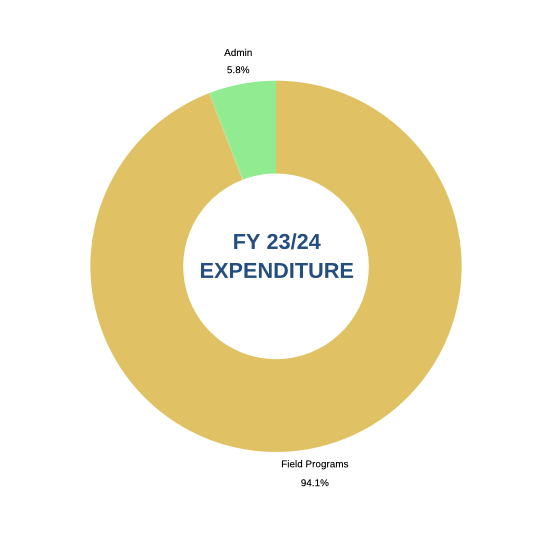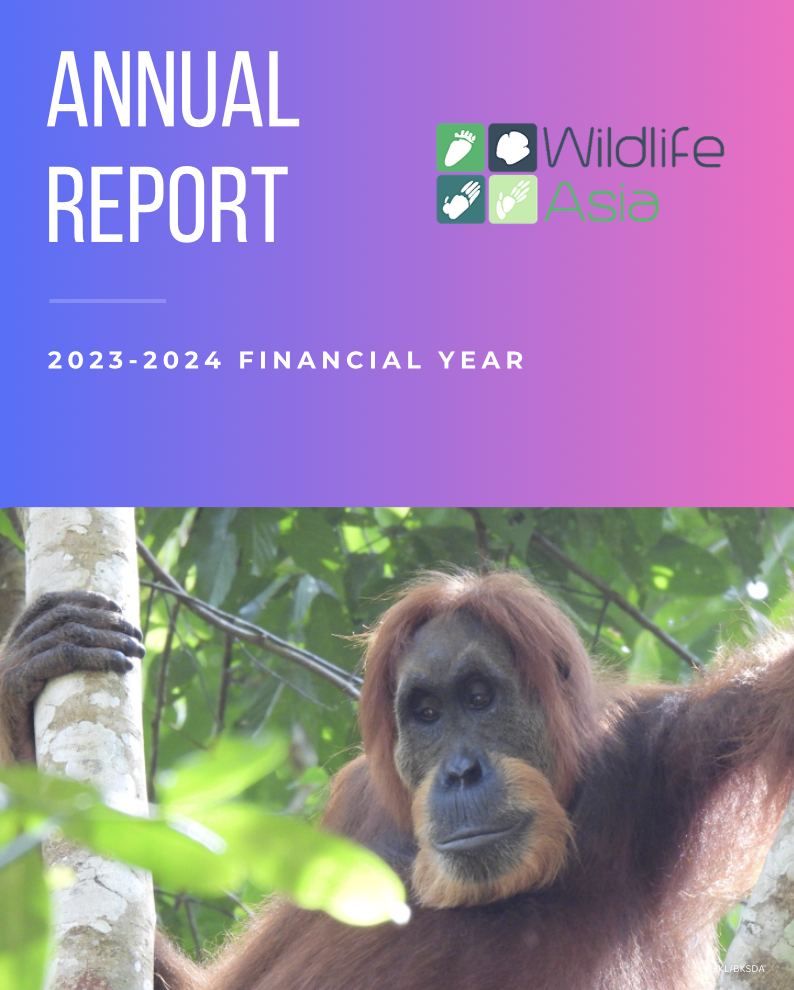| Grants | $1,906,549 | 88.65% |
| Private Donations | $235,047 | 10.93% |
| Interest/Other | $9028 | .42% |
| TOTAL INCOME | $2,150,624 | |
94% of Wildlife Asia’s spending is directed towards our field programs, supporting on-ground wildlife conservation activities. As a lean organisation, with minimal overheads, we demonstrate a commitment to our donors that their contributions will have a direct impact on protecting species and habitat.


| Program | $2,245,722 | 94.10% |
| Fundraising | $2,530 | 0.10% |
| Admin | $138,595 | 5.80% |
| TOTAL EXPENDITURE | $2,386,847 | |
A Message from our Executive Director
2024-Elevating wildlife and forest conservation
For most wildlife conservationists of our ‘vintage’, our work started with a passion to protect particular species and their habitats. In just a few short decades we have faced the realisation that the importance of our work extends well beyond our original intent and is now critical to the preservation of life on earth.
Of course, we recognised this many years ago, especially at the time we transitioned from our smaller species focused organisations to the landscape approach of Wildlife Asia. We knew then that protecting forest was essential but now as we aim to meet targets to mitigate climate change our work is simply not negotiable.
The 1.5°C global temperature increase threshold is a critical milestone in climate science, as it represents the level of warming that many scientists and policymakers agree could lead to serious and potentially irreversible impacts on ecosystems, human societies, and the climate system.
Although predicted to be surpassed sometime between 2030-2058, recent data indicates for the last 12 months we are already there. So, now what?
This is where our work takes centre stage. Up until now, nature has been our friend. Intact natural ecosystems (not agriculture or degraded lands) have absorbed 50% of our emissions, and their loss is accelerating, which is destabilizing the planet’s ability to mitigate the effects of climate change.
With tipping points fast approaching, these systems that have protected us may well in fact collapse. We must halt biodiversity loss, protect at least 50% of nature, and transition away from fossil fuel dependency. Nature’s resilience is essential to our survival, and humanity must urgently shift towards a nature-positive approach to safeguard the planet, and our future.
Biodiversity protection is not just a moral imperative but a scientifically necessary pathway for securing a liveable future for all. It is a message no longer just for the tree huggers amongst us to embrace!
For the future,
Clare Campbell
Executive Director

